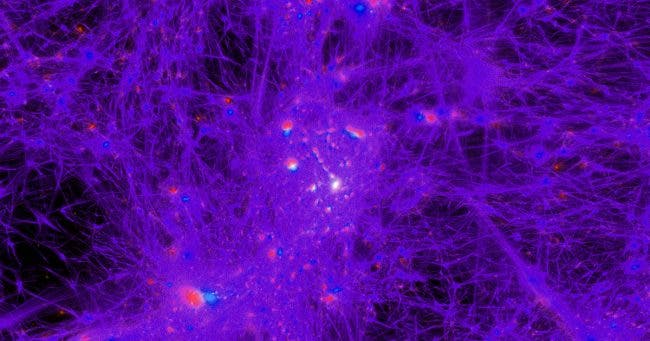The cosmos contains a Higgs field—similar to an electric field—generated by Higgs bosons in the vacuum. Particles interact with the field to gain energy and, through Albert Einstein’s iconic equation, E=mc2, mass. The Standard Model of particle physics, although successful at describing elementary particles and their interactions at low energies, does not include a viable and hotly debated dark-matter particle. The only possible candidates, neutrinos, do not have the right properties to explain the observed dark matter.
“One particularly interesting possibility is that these long-lived dark particles are coupled to the Higgs boson in some fashion—that the Higgs is actually a portal to the dark world. We know for sure there’s a dark world, and there’s more energy in it than there is in ours. It’s possible that the Higgs could actually decay into these long-lived particles,” said LianTao Wang, a University of Chicago physicist, in 2019, referring to the last holdout particle in physicists’ grand theory of how the universe works, discovered at the LHC in 2012, filling the last gap in the standard model of fundamental particles and forces. Since then, the standard model has stood up to every test, yielding no hints of new physics.
The dark world makes up more than 95 percent of the universe, but scientists only know it exists from its effects—” like a poltergeist you can only see when it pushes something off a shelf.” We know there’s dark matter because like the poltergeist, we can see gravity acting on it keeping galaxies from flying apart.










Comments are closed.